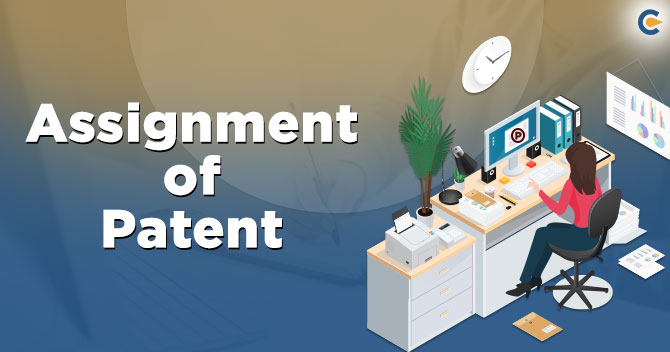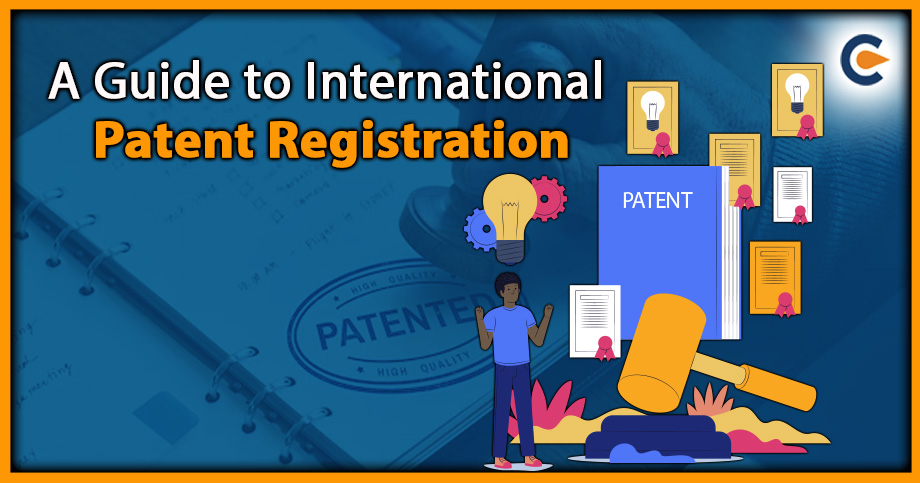A patent is considered as the transferrable property that can be transferred from the original patentee to any other person by assignment of patent or operation of law. A patent can be licensed or can be assigned only by the owner of the patent. In the case of co-owners or joint-owners, a co-owner can assign or license the patent only upon the other owners’ consent.
Requirements for Creation of an Interest in a Patent
Under Section 68 of the Indian Patents Act 1970 it provides for the mortgage, license, or creation of any interest in the patent. Assignment of Patent would not be valid unless in writing and duly executed- An assignment of patent or share in a patent, mortgage, license, or the creation of any other interest in a patent must not be valid unless the same were in writing. The agreement between the parties concerned will reduce to the document’s form embodying all the terms and conditions governing their rights & obligations and duly executed.
List of the Requirements
- The assignment, mortgage, or license must be reduced to writing in a document embodying all the terms and conditions governing the rights & obligations between the parties
- An application for registration of such a document must be filed in a prescribed manner in Form-16 within the prescribed time under section 68. The document, when gets registered, will have effect from the date of execution.
Read our article:Patent in India: Registration and Filing Process
Forms of Transfer of Patent Rights
Patent Registration or Grant of the Patent confers to a patentee ‘the right to prevent others’ from making, exercising, using, or selling an invention without his permission. The methods in which a patentee can deal with the transfer of patent are as follows:


1. Assignment
The term ‘assignment of patent’ is not defined in the Indian Patents Act. An assignment is an act by which the patentee assigns whole or part of the patent rights to the assignee who acquires a right to prevent others from making, exercising, using, or vending the invention. There are three kinds of assignments. Those are as follows:-
- Legal Assignment
An assignment or an agreement to assign for an existing patent is the legal assignment, where an assignee may enter his name as the patent owner. A patent that is created by the deed can only be assigned through a deed. A legal assignee entitled as a proprietor of the patent acquires all rights thereof.
- Equitable Assignments
Any agreement that includes a letter in which the patentee agrees to give the certain defined share of a patent to another person is an equitable assignment of patent. However, in that case, an assignee cannot have his name entered in the register as a proprietor of the patent. But the assignee can give notice of his interest in the patent entered in a register.
- Mortgages
A mortgage is an agreement where the patent rights are wholly or partly transferred to the assignee in return for the sum of money. Once an assignor repays the sum to an assignee, the patent rights are restored to the assignor and patentee. A person in whose favor the mortgage is made must not be entitled to have his name entered in the register as a proprietor, but he can get his name entered in the register as the mortgagee[1].
2. Licenses
The Patents Act allows the patentee to grant a License by way of an agreement under section 70 of the Act. A patentee, by way of granting a license, may permit a licensee to make, use, or exercise the invention. The license granted is not valid unless it is in writing. A license is a contract signed by the licensor and the licensee in writing. The terms agreed upon by them include the payment of royalties at a rate mentioned for all articles made under the patent. Licenses are of the following types:
- Voluntary licenses
It is a license given to any other person to make, use, and sell the patented article as agreed upon the terms of the license in writing. As it is a voluntary license, the Controller and Central government do not have any role to play. The agreement is mutually agreed upon the terms and conditions made by the licensor and licensee. In case of any disagreement, the licensor has the right to cancel the licensing agreement.
- Statutory licenses
The central government grants statutory licenses by empowering the third party to make/use the patented article without the patent holder’s consent in view of public interest. For an example of such statutory licenses which is a compulsory license. Compulsory licenses are defined as “authorizations permitting a third party to make, use, or sell a patented invention without the patent owner’s consent.
- Exclusive Licenses and Limited Licenses
It depends upon a degree and extent of rights conferred on the licensee; a license can be an Exclusive or Limited License. An exclusive license excludes all the other persons, including the patentee, from the right to use the invention. Anyone or more rights of the patented invention can be conferred from the patentee’s bundle of rights. The rights can be divided and assigned, restrained entirely, or in part. The limitation may arise in a limited license as to persons, time, manufacture, place, use, or sale.
- Express and Implied Licenses
An express license is one where the permission to use a patent is given in express terms. This license will not be valid unless it is in writing in the document embodying upon terms and conditions. In case of implied license, though permission is not given in express terms, it is implied from the circumstances. For instance, where a person buys a patented article, either within a jurisdiction or abroad either directly from a patentee or his licensees, there is an implied license in any way and to resell it.
3. Transmission of Patent by Operation of law
When the patentee dies, his interest in the patent passes to his legal representative. In case of the dissolution or winding up of a company or bankruptcy, the transmission of a patent by operation of law when occurs.
Difference between Assignee and Licensee
In turn, an assignee can reassign his rights to third parties while the licensee cannot change a title or cannot reassign his rights to the third person. An assignee is assigned with all the patent owner’s rights while the licensee cannot enjoy the rights. An assignee has the right to sue an infringer while a licensee is not empowered with the right to sue any party for the infringement of the patent in his name.
Conclusion
An assignment of patent is a transfer of all the proprietary rights by the patentee to the assignee. Simultaneously, the license is the right granted to work the invention by withholding the patentee’s proprietary rights. Knowing the difference between assignment and license from those described above, the patentee can decide the best possible way of commercializing his/her inventions.
Read our article:Detailed Process of Patent Registration in India











